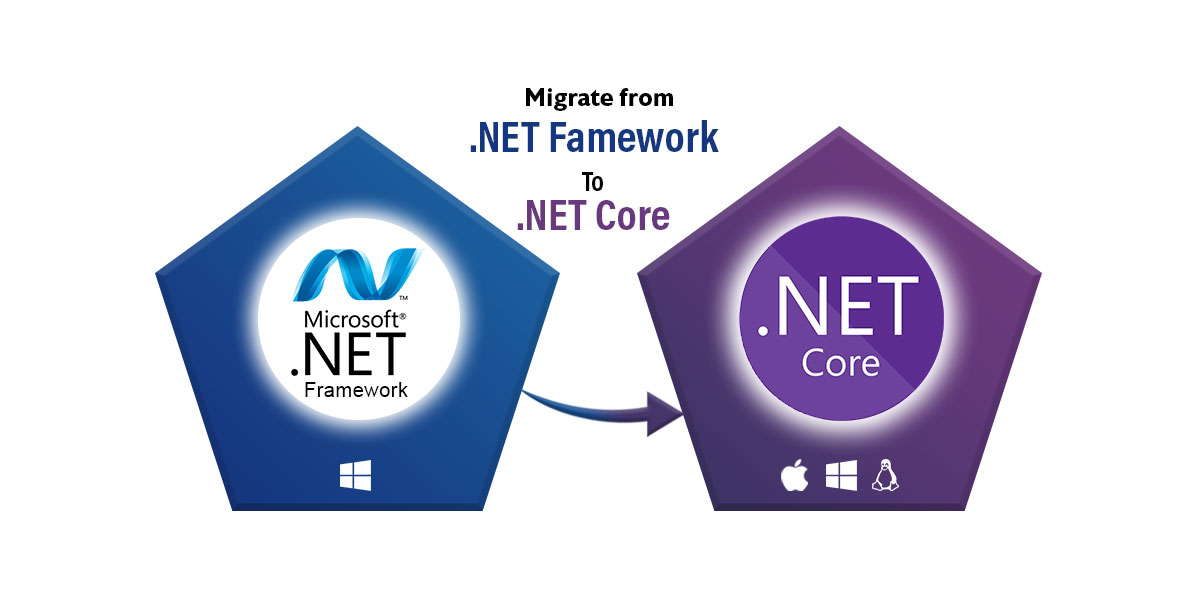Migration from Existing Legacy System to New .Net Core: Gain or Loss?

 Back in the year 2016, Microsoft released the initial version of .NET Core or more precisely advanced substitute of .NET framework, developed in 2002. Being a free, open-source, cross-platform software, and having a compatible nature with all the existing operating systems, it becomes a stellar approach for developing mobile, web-based and cloud applications. After the stable release of .NET Core, organizations are continuously taking their projects towards this platform to experience flexibility, feasibility and scalability traits. This article will shed light on the reasons to migrate from the .NET Framework to .NET Core and will discuss how .NET Core is a foreseeable landscape for application industry.
Back in the year 2016, Microsoft released the initial version of .NET Core or more precisely advanced substitute of .NET framework, developed in 2002. Being a free, open-source, cross-platform software, and having a compatible nature with all the existing operating systems, it becomes a stellar approach for developing mobile, web-based and cloud applications. After the stable release of .NET Core, organizations are continuously taking their projects towards this platform to experience flexibility, feasibility and scalability traits. This article will shed light on the reasons to migrate from the .NET Framework to .NET Core and will discuss how .NET Core is a foreseeable landscape for application industry.
Key Drivers
Improves Developer’s Experience
Among all the features of .NET Core, the one feature that makes this product more desirable is its compatibility with various platforms; Windows, Linux, macOS and mobile operating systems. Therefore, if the application has cross-platform needs, then .NET Core is an optimized choice to start with and developers, having a prior knowledge in C++, along with similar programming languages, can easily build Cloud applications. Nevertheless, code refactoring of large applications can also be done to acquire a micro-set of services. In addition, the Visual Studio open-source code editor, supported by Microsoft, reduces the working hours of developers due to the presence of debugging tools and IntelliSense editor options.
Persuasive Performance
While choosing technology for modern applications, developers always seek for scalable, robust and high-paced platforms. .NET Core offers all these features to build scalable apps combined with short-lived faults or glitches. By enabling reckless server runtime for both Windows and Linux OS, the .NET Core is the right way to leverage fast-moving applications.
Brings .NET Dependencies
Dependency injection is a powerful way to get loosely coupled code; the built-in features of .NET Core endure DI support so that developers can easily contrivance development patterns across different application layers. Besides, the .NET Core is a benchmark path to do unit testing and practice .NET dependencies. It notifies developers about performance issues, associated risks during upgrading and brings cost-effective solutions. Legacy products mostly are tightly couple code and this can give them the extra edge.
Extensive Documentations
Microsoft community and developer plays a vital role to make .NET Core the next big thing for future applications. At its core, the community constantly changes .NET Core architecture, and these changes are far better than previous versions. The regular updates and improvised versions of .NET Core make it sharp and recommended choice for different scenarios.
Mitigation
In spite of all these benefits, there are some pitfalls too. Since .NET Core was released three years ago, thus it does not contain all the libraries in contrast to the .NET framework. Though with constant upgrades and changes, it becomes an ideal choice, it also brings pressure on developers to cope with regular updates. Apart from this, .NET Core does not support desktop, WPF applications, and Windows Forms, and also lacks the third-party library sustenance.
The Bottom line
In a nutshell, we conclude that it all depends on the application scenarios and type of project that the organization needs to accomplish. But with time, when .NET Core will completely replace the .NET framework through its productive features, then migration becomes essential to get all the promising characteristics.






